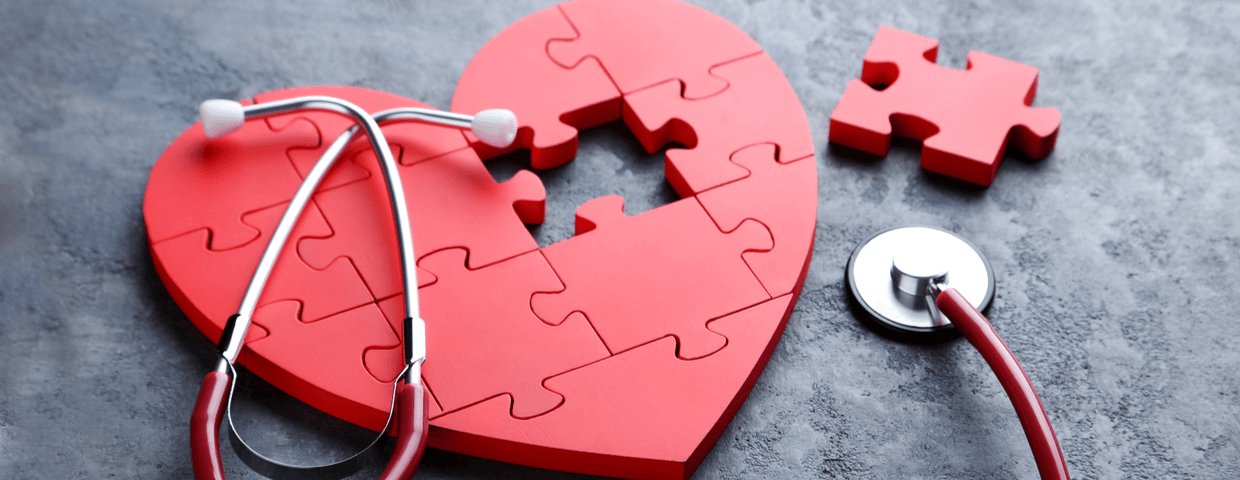Posted by Heart Hugger on Jun 28, 2021 1:42:13 PM

There’s perhaps nothing more concerning than the prospect of heart surgery, and the recovery period afterward. But having the right information can ease your mind, and speed your recovery.
Your Recovery Time May Vary
Depending on your original diagnosis, your age, health, genetics, and many other factors, keep in mind that your recovery time is as unique as you are. But keep in mind that you will be in the hospital for at least 1-3 days and that your recovery time overall will take at least 6 weeks. Be patient with yourself!
As a heart survey patient, you are bound to have a lot of questions. And while your doctor is always going to be the best source of information regarding your unique situation and recovery, here are some general tips and things to keep in mind in order to support the best recovery possible!
Follow-Up Appointments
Expect to keep seeing your surgeon, doctor, or other members of your healthcare team for the duration of your recovery, and beyond. This is to ensure that you are healing correctly, to answer any questions that you or your loved ones may have, and to detect or avoid potential complications.
Rehabilitation
Moving around and exercising after open-heart surgery can feel very scary, and that’s why cardiac rehabilitation happens in phases. At first, you will be supported to sit up, get out of bed, and walk around. Out of the hospital, exercise and diet changes that are appropriate will be taught and encouraged. The next phases will be focused on monitoring your recovery and lifestyle changes, and then ramping them up as your team sees safe and appropriate.
Limitations During Your Recovery
There are many things that you will either have to (and may want to!) do differently during your recovery. As your recovery advances, these limitations will change but here are some guidelines to keep in mind:
- 1-6 Weeks: During the first 6 weeks, it may not be suitable for you to drive, lift more than 10 pounds, soak in water, or return to full-time work. Take breaks, listen to your body, and allow yourself time to heal.
- 6 weeks to 3 months: This is the time period where you may be able to feel more ‘normal’ again. Gardening, taking walks, working, and enjoying daily activities much like you did before, with your doctor’s blessing.
- 3 months and counting: At this phase, you may be considered ‘recovered’ and with your doctor’s blessing you may be able to take up more strenuous activities, and sports.
Wound Care
This can feel like the most daunting part of heart survey recovery, but here are some simple things you can do to help speed your recovery.
- In general, don’t remove the bandage for at least 2 days (unless it’s oozing or there is a discharge, in which case you should consult your doctor).
- While bathing isn’t recommended, showers (avoid spraying your incision directly) with mild soap may be allowed. Be gentle, avoid scrubbing, and pat dry.
- Check your incision often, and alert your doctor or medical team of any changes including redness, swelling, heat, discharge, bleeding, or oozing.
- Protect your incision from the sun, chemicals, lotions, soaps, and sprays or powders.
- Alert your doctor if you feel any popping, cracking, or shifting in your breastbone
Emotional health during your recovery
Heart surgery is very serious, and the days and months leading up to your heart surgery can be a very scary time. After your surgery, the discomfort and restrictions can take a toll on your emotional well-being. It’s important to keep a routine, practice self-care (get dressed, brush your hair, etc), communicate regarding your feelings with your loved ones, and keep your doctor apprised of your mental health status as well. But above all, set realistic expectations and be gentle with yourself.
Diet, Rest, and Sleep
Your doctor and health care team may recommend dietary changes that will help speed your recovery and prevent complications in the future. Initially, after heart surgery, you may not have much of an appetite, and that’s okay! Eat small, light meals until your appetite returns.
The same goes for sleeping after surgery: it may be difficult at first, but you should be sleeping normally again within a month or so. Try not to nap too often during the day, and avoid caffeine.
Pain Relief
Your doctor may prescribe you pain relief medication prior to leaving the hospital, and instructions on how to safely use them to manage your pain in an effective manner. However, with a Heart Hugger support harness, it is possible to manage your pain without prescription medication. As your healing progresses, your pain will subside over time. Keeping a schedule and staying active (within your doctor’s guidelines) can help manage your pain as well.
As a heart surgery patient, you have so much power over the success and speed of your recovery! Follow your doctor’s recommendations, make sure to ask any questions or raise any concerns that you may have, take it easy, but follow the path that leads you to your best recovery.
If you’d like to learn more about heart surgery recovery and how Heart Hugger can help you get back to normal, contact us today!
